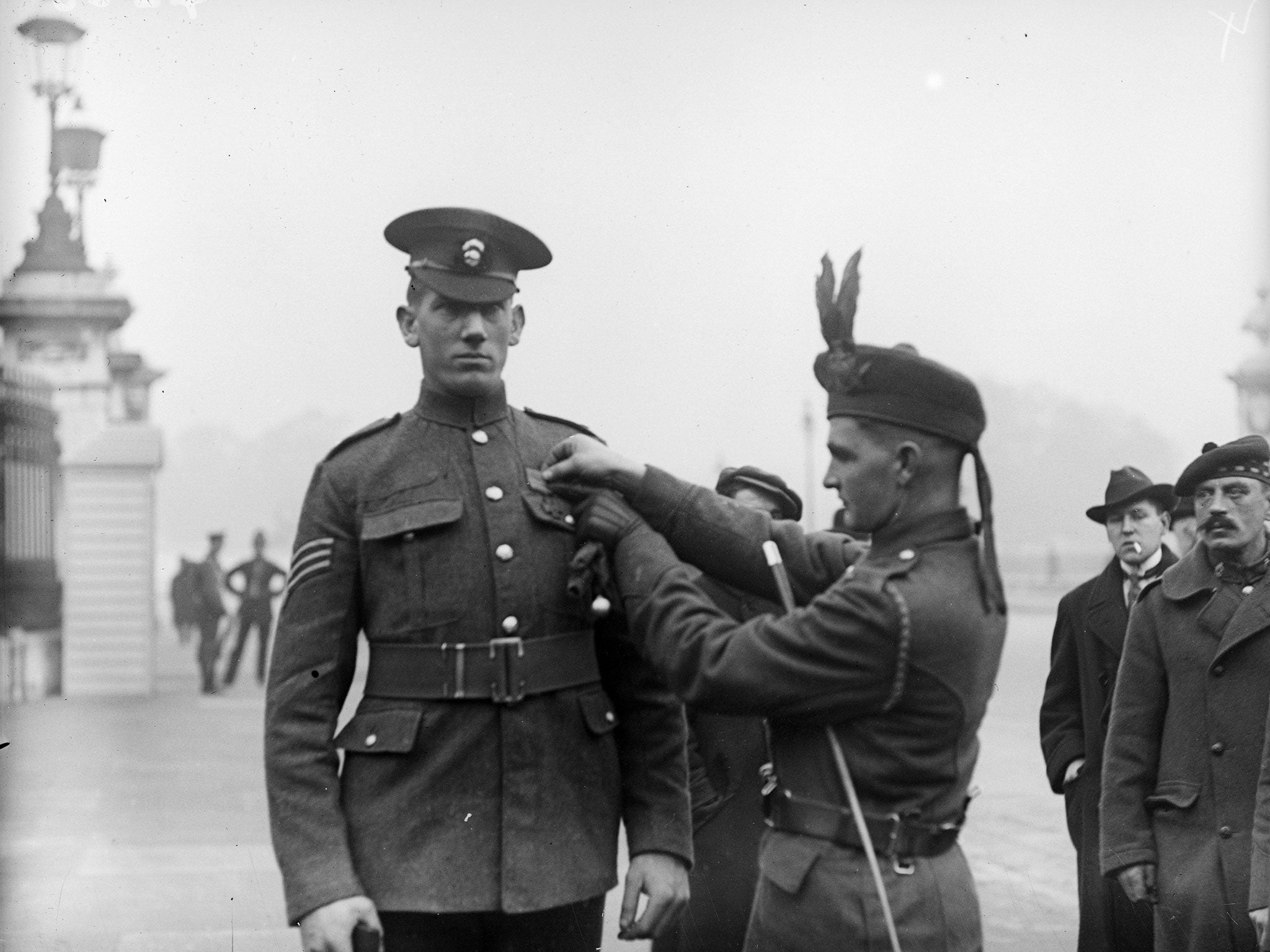First World War centenary: Foreign winners of the Victoria Cross commemorated

Your support helps us to tell the story
From reproductive rights to climate change to Big Tech, The Independent is on the ground when the story is developing. Whether it's investigating the financials of Elon Musk's pro-Trump PAC or producing our latest documentary, 'The A Word', which shines a light on the American women fighting for reproductive rights, we know how important it is to parse out the facts from the messaging.
At such a critical moment in US history, we need reporters on the ground. Your donation allows us to keep sending journalists to speak to both sides of the story.
The Independent is trusted by Americans across the entire political spectrum. And unlike many other quality news outlets, we choose not to lock Americans out of our reporting and analysis with paywalls. We believe quality journalism should be available to everyone, paid for by those who can afford it.
Your support makes all the difference.Overseas winners of the Victoria Cross during the First World War - from a Danish aristocrat to an American doctor - have been honoured with plaques commemorating their bravery.
The bronze plaques will acknowledge the courage of Allied troops from British dominions such as India as well as Commonwealth and other countries as part of the commemoration of the centenary of the First World War.
The memorial plates, naming each of 175 men from 11 countries who secured Britain’s highest military honour, will be sent to the home country of each Victoria Cross winner for display in prominent locations, including Washington DC’s Arlington Cemetery.
At a ceremony today, Foreign Office minister Baroness Warsi said it was right for Britain to recognise the bravery of soldiers who had come from across the world, from different backgrounds and faiths, to fight with the Allies.
She said: “It is important to remember this was a truly global war, one which pulled in people from every corner of the earth. It is truly inspiring that so many countries came together 100 years ago to uphold our way of life. This was a war which saw extraordinary courage and sacrifice from an entire generation.”
Nearly one in the three of the 628 Victoria Crosses awarded during the war were received by soldiers from overseas, including 70 Canadians, 66 Australians and 16 New Zealanders.
The medal was also won by nine soldiers from present-day India and Pakistan, which contributed 1.2 million troops to the Allied armies, and two from Nepal. American forces won five VCs.
There were also winners from unexpected locations, including Thomas Dinesen, a Danish aristocrat who unsuccessfully tried to join the French, British and American armies before being accepted by the Canadians as a private.
During the Battle of Amiens in August 1918, Private Dinesen helped secure a mile of heavily defended German trenches. His citation read: “Five times in succession he rushed forward alone, and single-handed put hostile machine guns out of action, accounting for twelve of the enemy with bomb and bayonet.”
Another VC winner was Bellenden Hutcheson, an American doctor who joined Canadian forces as a medical officer and won the medal after he insisted on staying on the battlefield in 1918 to tend to every one of his unit’s wounded.
His citation read: “He rushed forward, in full view of the enemy, under heavy machine gun and rifle fire, to tend a wounded sergeant, and, having placed him in a shell-hole, dressed his wounds. Captain Hutcheson performed many similar gallant acts, and, by his coolness and devotion to duty, many lives were saved.”
Join our commenting forum
Join thought-provoking conversations, follow other Independent readers and see their replies
Comments